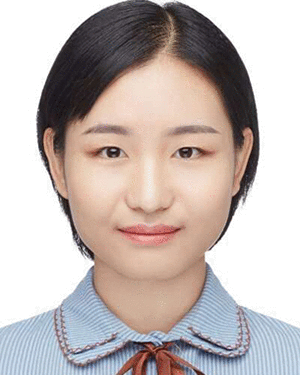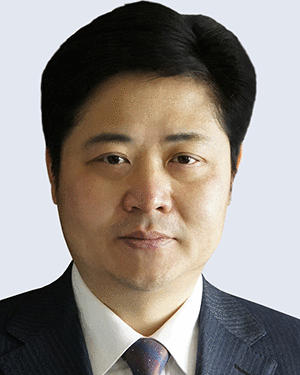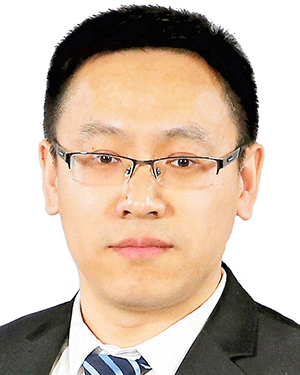Abstract:
This paper explores fractional spectrum analysis for periodically and nonuniformly sampled signals with finite disjoint bands in the fractional Fourier domain. Considerin...Show MoreMetadata
Abstract:
This paper explores fractional spectrum analysis for periodically and nonuniformly sampled signals with finite disjoint bands in the fractional Fourier domain. Considering that spectrum aliasing occurs in sub-Nyquist sampling in the fractional Fourier domain, we study the conditions for reconstructing the fractional spectrum and devise relevant reconstruction methods. To obtain these goals, we investigate discrete-time fractional Fourier transform of the sampled signal that enables disjoint fractional frequency sub-intervals separated by aliasing boundaries. In order to implement perfect fractional spectrum reconstruction with reduced computations, we minimize the average sampling rate required by nonuniform sampling by means of properly choosing a sampling period. The theoretical lower bound on the optimized average sampling rate is much smaller than the lowest sampling rate required by uniform sampling under the same condition. Moreover, we derive the upper and lower bounds on the mean square error of fractional spectrum reconstruction with incorrect fractional spectrum modeling that assumes the signal as bandlimited to a large fractional frequency interval. Based on the derivations, we then obtain the optimal reconstruction parameters for spectrum reconstruction. Simulation results verify the effectiveness of our proposed methods.
Published in: IEEE Transactions on Signal Processing ( Volume: 70)
Funding Agency:

School of Information and Electronics, Beijing Institute of Technology, Beijing, China
Jinming Ma received the B.S. degree from the School of Mathematical Sciences, Hebei Normal University, Shijiazhuang, China and the Ph.D. degree from the School of Information and Electronics, Beijing Institute of Technology, Beijing, China, in 2014 and 2021, respectively. She is currently a Postdoctoral Researcher with the Department of Electronic Engineering, Tsinghua University, Beijing, China. Her research interests in...Show More
Jinming Ma received the B.S. degree from the School of Mathematical Sciences, Hebei Normal University, Shijiazhuang, China and the Ph.D. degree from the School of Information and Electronics, Beijing Institute of Technology, Beijing, China, in 2014 and 2021, respectively. She is currently a Postdoctoral Researcher with the Department of Electronic Engineering, Tsinghua University, Beijing, China. Her research interests in...View more

School of Information and Electronics, Beijing Institute of Technology, Beijing, China
Ran Tao (Senior Member, IEEE) was born in 1964. He received the B.S. degree from the Electronic Engineering Institute of PLA, Hefei, China, in 1985, and the M.S. and Ph.D. degrees from the Harbin Institute of Technology, Harbin, China, in 1990 and 1993, respectively.
In 2001, he was a Senior Visiting Scholar with the University of Michigan, Ann Arbor, MI, USA. He is currently a Professor with the School of Information and ...Show More
Ran Tao (Senior Member, IEEE) was born in 1964. He received the B.S. degree from the Electronic Engineering Institute of PLA, Hefei, China, in 1985, and the M.S. and Ph.D. degrees from the Harbin Institute of Technology, Harbin, China, in 1990 and 1993, respectively.
In 2001, he was a Senior Visiting Scholar with the University of Michigan, Ann Arbor, MI, USA. He is currently a Professor with the School of Information and ...View more

School of Information and Electronics, Beijing Institute of Technology, Beijing, China
Yongzhe Li (Member, IEEE) received the B.Eng. (Hons.) and Ph.D. degrees in electronic engineering from the University of Electronic Science and Technology of China (UESTC), Chengdu, China, in 2008 and 2016, respectively, and the D.Sc. degree (Hons.) from Aalto University, Finland, in 2018.
From 2013 to 2014, he was a Visiting Scholar with Aalto University and a Doctoral Researcher from 2014 to 2018. Since 2019, he has been...Show More
Yongzhe Li (Member, IEEE) received the B.Eng. (Hons.) and Ph.D. degrees in electronic engineering from the University of Electronic Science and Technology of China (UESTC), Chengdu, China, in 2008 and 2016, respectively, and the D.Sc. degree (Hons.) from Aalto University, Finland, in 2018.
From 2013 to 2014, he was a Visiting Scholar with Aalto University and a Doctoral Researcher from 2014 to 2018. Since 2019, he has been...View more

School of Information and Electronics, Beijing Institute of Technology, Beijing, China
Jinming Ma received the B.S. degree from the School of Mathematical Sciences, Hebei Normal University, Shijiazhuang, China and the Ph.D. degree from the School of Information and Electronics, Beijing Institute of Technology, Beijing, China, in 2014 and 2021, respectively. She is currently a Postdoctoral Researcher with the Department of Electronic Engineering, Tsinghua University, Beijing, China. Her research interests include sampling, spectral analysis, and fractional Fourier transform.
Jinming Ma received the B.S. degree from the School of Mathematical Sciences, Hebei Normal University, Shijiazhuang, China and the Ph.D. degree from the School of Information and Electronics, Beijing Institute of Technology, Beijing, China, in 2014 and 2021, respectively. She is currently a Postdoctoral Researcher with the Department of Electronic Engineering, Tsinghua University, Beijing, China. Her research interests include sampling, spectral analysis, and fractional Fourier transform.View more

School of Information and Electronics, Beijing Institute of Technology, Beijing, China
Ran Tao (Senior Member, IEEE) was born in 1964. He received the B.S. degree from the Electronic Engineering Institute of PLA, Hefei, China, in 1985, and the M.S. and Ph.D. degrees from the Harbin Institute of Technology, Harbin, China, in 1990 and 1993, respectively.
In 2001, he was a Senior Visiting Scholar with the University of Michigan, Ann Arbor, MI, USA. He is currently a Professor with the School of Information and Electronics, Beijing Institute of Technology, Beijing, China. He has authored 3 books and more than 200 peer-reviewed journal articles. His current research interests include fractional Fourier transform and its applications in radar and communications.
Dr. Tao was the recipient of the the National Science Fund for Distinguished Young Scholar in 2006, the Yangtze River Scholar Distinguished Professor in 2009, the First Prize of Science and Technology Progress in 2006 and 2007, and the First Prize of Natural Science in 2013, both awarded by the Ministry of Education, and the first prize in Technology and Invention of the Chinese Institute of Electronics in 2021. He was awarded the Famous Teachers of Higher Education in Beijing and the Young Teachers of Higher Education in 2018 and 2001, respectively. He was the Chief Professor of the Creative Research Groups of the National Natural Science Foundation of China since 2014. He is currently the Vice Chair of the International Union of Radio Science (URSI) China Council. He is an Editor-in-Chief of the Journal of Beijing Institute of Technology and an Associate Editor for IEEE Signal Processing Letters.
Ran Tao (Senior Member, IEEE) was born in 1964. He received the B.S. degree from the Electronic Engineering Institute of PLA, Hefei, China, in 1985, and the M.S. and Ph.D. degrees from the Harbin Institute of Technology, Harbin, China, in 1990 and 1993, respectively.
In 2001, he was a Senior Visiting Scholar with the University of Michigan, Ann Arbor, MI, USA. He is currently a Professor with the School of Information and Electronics, Beijing Institute of Technology, Beijing, China. He has authored 3 books and more than 200 peer-reviewed journal articles. His current research interests include fractional Fourier transform and its applications in radar and communications.
Dr. Tao was the recipient of the the National Science Fund for Distinguished Young Scholar in 2006, the Yangtze River Scholar Distinguished Professor in 2009, the First Prize of Science and Technology Progress in 2006 and 2007, and the First Prize of Natural Science in 2013, both awarded by the Ministry of Education, and the first prize in Technology and Invention of the Chinese Institute of Electronics in 2021. He was awarded the Famous Teachers of Higher Education in Beijing and the Young Teachers of Higher Education in 2018 and 2001, respectively. He was the Chief Professor of the Creative Research Groups of the National Natural Science Foundation of China since 2014. He is currently the Vice Chair of the International Union of Radio Science (URSI) China Council. He is an Editor-in-Chief of the Journal of Beijing Institute of Technology and an Associate Editor for IEEE Signal Processing Letters.View more

School of Information and Electronics, Beijing Institute of Technology, Beijing, China
Yongzhe Li (Member, IEEE) received the B.Eng. (Hons.) and Ph.D. degrees in electronic engineering from the University of Electronic Science and Technology of China (UESTC), Chengdu, China, in 2008 and 2016, respectively, and the D.Sc. degree (Hons.) from Aalto University, Finland, in 2018.
From 2013 to 2014, he was a Visiting Scholar with Aalto University and a Doctoral Researcher from 2014 to 2018. Since 2019, he has been an Assistant Professor with the School of Information and Electronics, Beijing Institute of Technology, Beijing, China. His research interests include statistical and array signal processing, radar signal processing, joint radar-communications co-existence, and fast optimization methods in signal processing.
Dr. Li was a recipient of the 2019 Aalto University Dissertation Award, the 2016 Nokia Foundation Grant Award, the 2013 State Scholarship Award of China Scholarship Council, and the 2008 Distinguished Graduate Award of UESTC. Since 2021, he has been an Associate Editor for the Journal of Beijing Institute of Technology. He was a TPC member and a session chair for the 2021 CIE International Conference on Radar, Haikou, China, and was also a Co-Chair for the 2021 and 2022 IEEE WCNC Workshops held in Nanjing, China and Austin, TX, USA, respectively, both on Integrated Sensing (radar) and Communications.
Yongzhe Li (Member, IEEE) received the B.Eng. (Hons.) and Ph.D. degrees in electronic engineering from the University of Electronic Science and Technology of China (UESTC), Chengdu, China, in 2008 and 2016, respectively, and the D.Sc. degree (Hons.) from Aalto University, Finland, in 2018.
From 2013 to 2014, he was a Visiting Scholar with Aalto University and a Doctoral Researcher from 2014 to 2018. Since 2019, he has been an Assistant Professor with the School of Information and Electronics, Beijing Institute of Technology, Beijing, China. His research interests include statistical and array signal processing, radar signal processing, joint radar-communications co-existence, and fast optimization methods in signal processing.
Dr. Li was a recipient of the 2019 Aalto University Dissertation Award, the 2016 Nokia Foundation Grant Award, the 2013 State Scholarship Award of China Scholarship Council, and the 2008 Distinguished Graduate Award of UESTC. Since 2021, he has been an Associate Editor for the Journal of Beijing Institute of Technology. He was a TPC member and a session chair for the 2021 CIE International Conference on Radar, Haikou, China, and was also a Co-Chair for the 2021 and 2022 IEEE WCNC Workshops held in Nanjing, China and Austin, TX, USA, respectively, both on Integrated Sensing (radar) and Communications.View more


